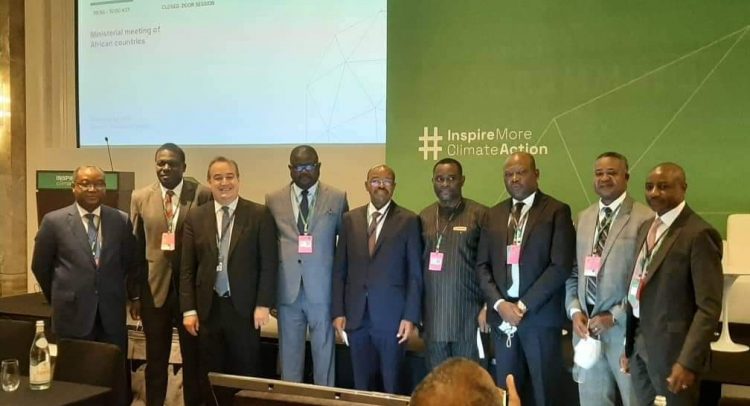Deputy Minister for Finance, John Ampontuah Kumah has hinted that the Akufo-Addo led Government is pursuing various programmes to make the transition to a low carbon economy which is critical to combating climate change and building a resilient economy.
According to him, the focus of the government is to establish a domestic Green Bond Market in Ghana, implementing Article 6 of the Paris Agreement, engaging the private sector to mobilize green investment, promoting green private sector development, and harnessing skills and also knowledge of various players for addressing climate change.
Dr. Kumah made this known when he represented the Finance Minister Ken Ofori Atta at the Private Investment for Climate Conference held in the Republic of Korea under the Global Climate Fund (GCF).
The conference brought together a range of leaders from the private and public sectors to explore innovative ways of mobilising finance at global scale for climate action in developing countries.
The Minister being elected as the new President of the Climate Vulnerable Forum (CVF) and chair of the Vulnerable 20 (V20), said Ghana has committed itself to steering the affairs of CVF/V20 towards the realization of its Vision 2025, as well as building on the achievements of previous administrations.
Speaking on the topic: How can Readiness resources address the needs of countries to advance climate investments, he said Ghana, like many countries, is susceptible to the ill effects of the global phenomenon of climate change as Climate Change poses a risk to future growth and development.
According to Dr. Kumah, Ghana has committed to reducing greenhouse gas emissions by 15% by 2030 relative to the business-as-usual scenario.
“An additional 30% emission reduction is attainable on condition that Ghana receives external support in the form of finance, technology transfer and capacity building to cover the full cost of implementing the identified mitigation actions”.
Dr. Kumah noted that as part of diversifying the country’s sources of financing climate-resilient development, Ghana formally became a GCF-ready country in 2015 when it applied for the Ministry of Finance to become an NDA, same year the country signed on to the Paris Agreement which was later ratified in 2016.
“Ghana has since submitted 19 proposals to seek funding from the GCF. 11 of the proposals (5 are project proposals, 5 readiness proposals and 1 Project Preparation Facility) have been approved by GCF with the rest of the eight pending approval. The March 2022 Board meeting of the GCF approved one of the said proposals”.
He explained as part of Ghana’s commitment to combat the ill-effects of climate change into action, the following policy, institutional, and legal framework arrangements have been executed:
“Ghana as a signatory to the Paris Agreement, is implementing its climate change actions through the updated Nationally Determined Contributions (NDCs). Ghana developed a National Climate Change Policy (NCCP) in 2014 and is looking forward to enact a Climate Change Law to enforce the implementation of its climate actions”.
Also in response to a constitutional requirement, Ghana prepared, in 2017, the President’s Coordinated Programme of Economic and Social Development Policies spanning the period 2017 to 2024 with Climate Change as a major focus, which underpins Ghana’s development effort in the medium-term.
He added that on the institutional front, the Ministry of Finance is the NDA and coordinates and mobilizes both domestic and external funding for climate interventions in the country.
“The Ministry of Environment, Science, Technology and Innovation (MESTI) is responsible for coordinating and formulating all climate change policies in the country” he noted.
Speaking further on the challenges to Implementation of Policies and Regulations, he said the estimated cost of Ghana’s Updated National Determined Contributions (NDCs) is between US$9.3bn to US$15.5bn out of which about US$11.6bn is expected to come from the international funding including the Green Climate Fund whiles the remaining will be coming from other funding sources including government.
He add that “The strategy is to mobilize additional resources from: Other DFIs including bilateral and multilateral sources to undertake key climate interventions. We are currently on the verge of rolling out a Green Credit Line with particular focus on Renewable Energy and Energy Efficiency, among others”.
He however urged the members to identify ways to enhance the communication between the GCF, NDAs and Delivery Partner.
” In this regard, the GCF should provide more financial support to the NDAs to be able to function properly and improve their communication and engagement channels” Dr. Kumah concluded.
-BY Daniel Bampoe

